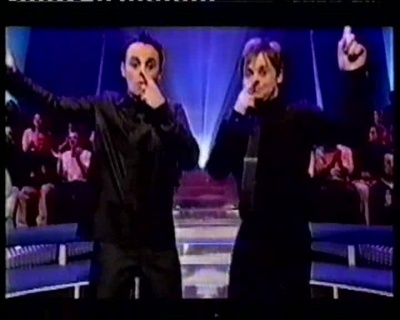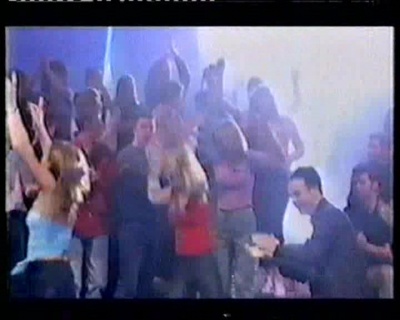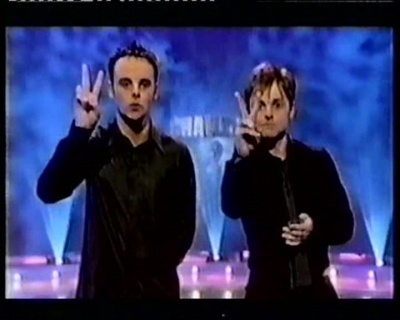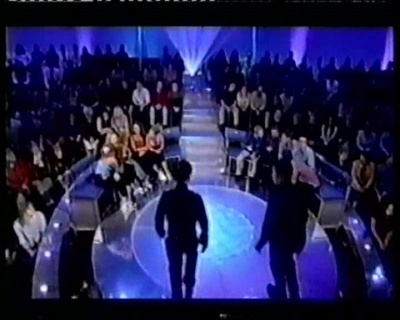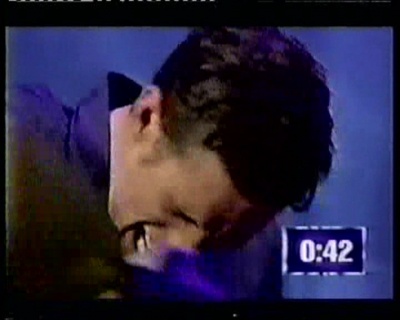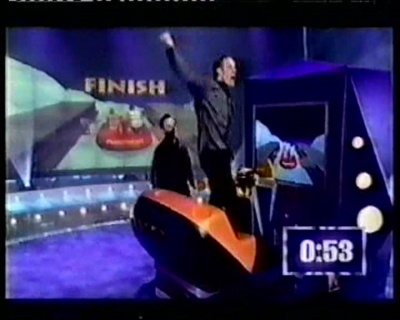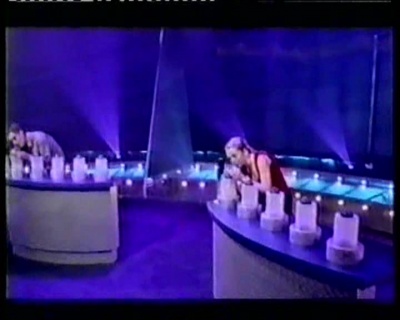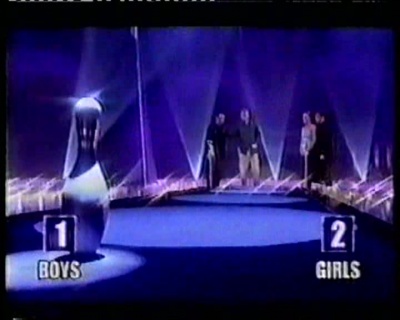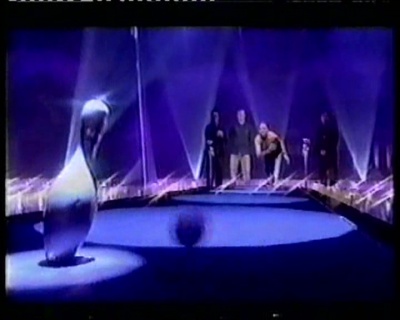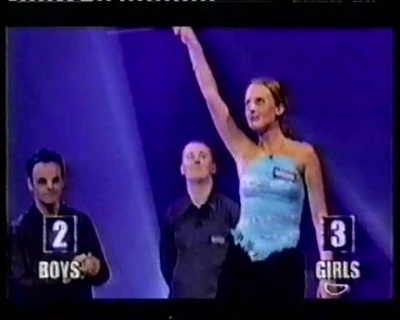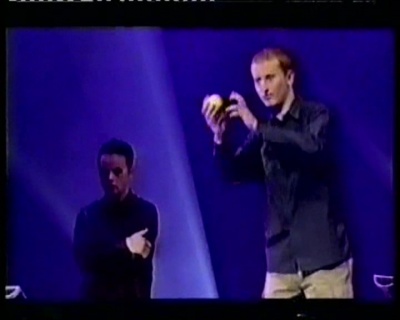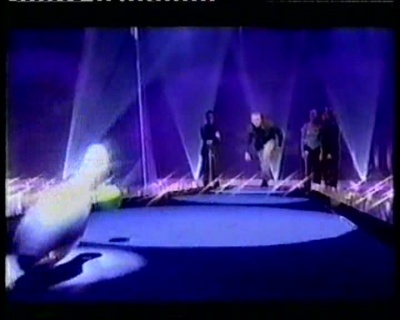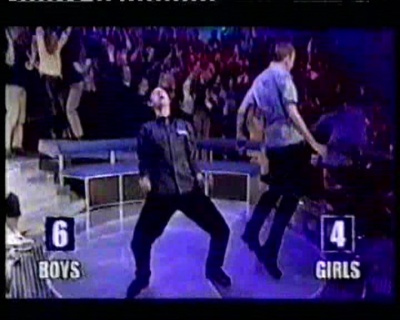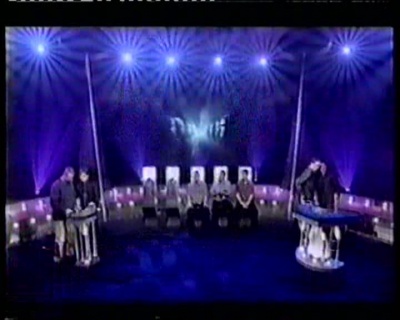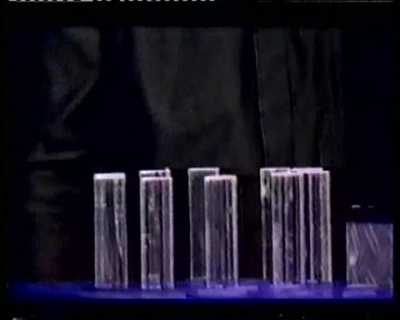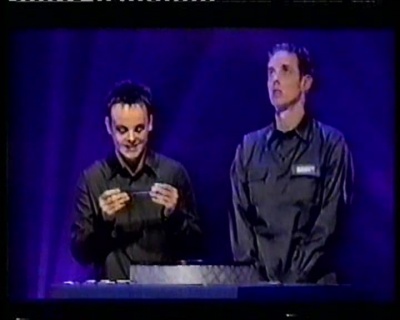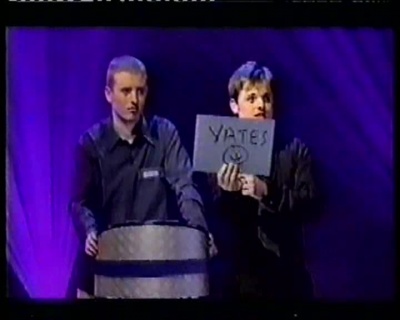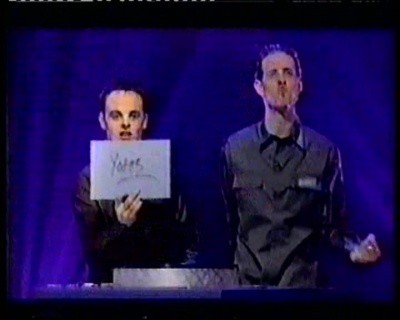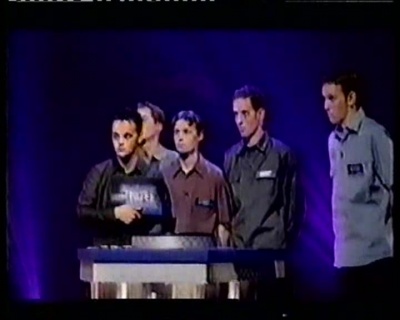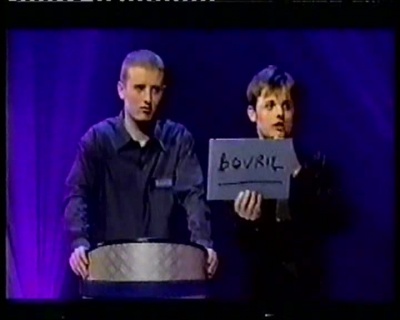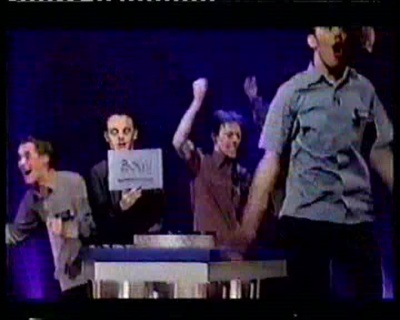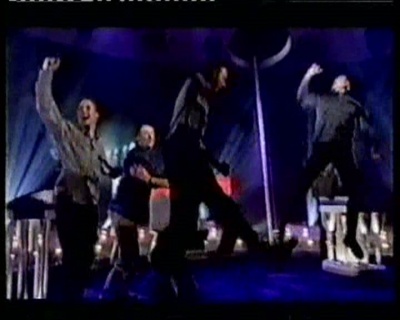Friends Like These
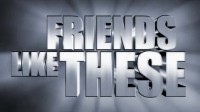
Contents |
Host
Ian Wright (2001-03)
Vernon Kay and Alison Hammond (non-broadcast pilot)
Co-hosts
Voiceover:
Mitch Johnson
Dave Chapman (Families Like These)
Broadcast
BBC One, 6 November 1999 to 20 September 2003 (pilot + 52 episodes in 6 series + 1 special)
Synopsis
Who Wants to be a Millionaire? is an undeniable success: its combination of drama and big money has done well for it all over the world. In America particularly several networks have tried to come up with a show that beats the pants off it. And they've failed. Why is this? Let's have a look shall we? Yes!
What Millionaire has is big money and drama. The personailty of the contestants is as important and interesting as the amount of money being played for. Sadly, just playing a normal show and giving it huge amounts of prize money doesn't always make for good viewing, and it's telling that when other Prime Time game shows go up against it they lose miserably without fail. Not necessarily because they're bad shows more because Who Wants To Be A Millionaire is, well, Who Wants To Be A Millionaire.
Don't worry, this synopsis is going to come round to Friends Like These in a second.
Now then, the BBC, which is funded by the licence payers (as opposed to Who Wants To Be a Millionaire which is, in a roundabout way, also funded by licence payers) cannot afford to give away the millions of pounds worth of cash and prizes because otherwise there would be no money to fund News 24. That means they're going to have to rely on drama to make a show.
The 'jeopardy' genre insists that to be interesting and dramatic there should be an element of risk. The BBC can't risk cash, so now they're trying to break friendships instead.
So, what we have here is a combination of You Bet!, The Crystal Maze, Mr and Mrs and Jerry Springer and you have surprisingly compelling (and cheap!) television.
Hosted by those cheeky chappies Ant and Dec (who host it in a surprisingly mature and professional manner) two teams of close friends, one made up of five lads and one made up of five ladettes (inevitably) battle it out for a holiday. To do this, they must each take part in a challenge. The challenge is explained first and then each team decides who they'll put forward for it.
 The women win this round as they jump for joy. (Get used to it folks. There's a lot of that in this show.)
The women win this round as they jump for joy. (Get used to it folks. There's a lot of that in this show.)Compare and contrast with Cilla's The Moment of Truth here in that the challenges are generally innocuous enough but become the hardest thing ever when done in competitive conditions and with the fate of the rest of your mates on your back. For example, you might have to thread a thread through five progressively smaller needles in a race against your opponent. By rights it should make for crap television. Instead: it doesn't.
For each challenge won the team win a point. There are four challenges in this way.
Because each person can only be in one challenge that leaves one person left from each team in what's known as The Decider. This would be a task where there would be many points on offer so any team can win but it favours the team in front.
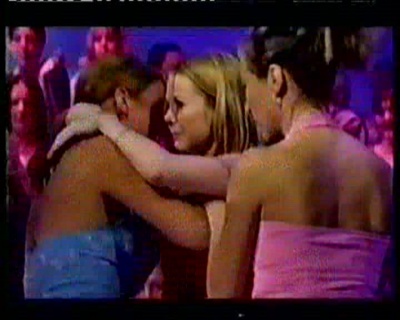 ...And the losers cuddle for 3 hours, knowing that this'll be the last time they'll be friends together again.
...And the losers cuddle for 3 hours, knowing that this'll be the last time they'll be friends together again.So then, that's four rounds worth one point each and the final round that's worth five. How very Leahyesque. At this point we should be slagging the show off no end, shouting things like 'Aaah! You're crap!' and such like and yet we're not, because it's here the show succeeds in what it sets out to do and that is put enormous pressure on these two players and the rest of the teams. Not only do you throw away a lead for yourself but you throw away a lead for everybody. It's horrible viewing, and yet fantastic and exciting.
But that's not all because the winning team then have another surprise waiting for them. While there are five tickets to the holiday destination, each person has to earn them... for another mate. This is the Mr and Mrs bit. Before the show the team fill out a questionnaire so that 10 questions can be made up about them. Each person selects a mate to help win them their ticket and their mate picks one of the ten questions at random. These can be horribly obscure, "What colour are your Mum's favourite undergarments?" and such like but both people write down their answer. If they match then the player goes on holiday and if not then they don't. Simple and harsh as that. Each person can only answer one question so the choices as to whom can be picked get less with each question.
BUT! Then the show throws up another surprise. The people who have won holidays can fly out the next day. Or, they can gamble the holidays that they've won on an all or nothing question: if they're right then everyone goes on holiday and if not then none of them do. The odds should be in their favour as it's everybody who hasn't won collectively answering a question on one of the people who have won the holiday, but then of course the winning players don't have to give up their holidays. Ah.
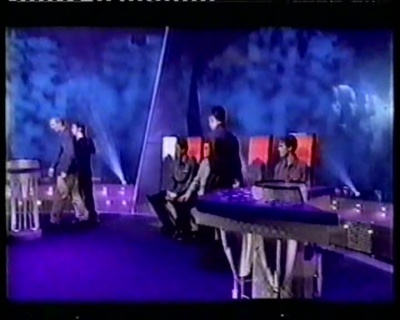 At the end of that round, only one person is off to Malaysia. But there's still a chance to gamble it all and take your friends with you (Even though they know nothing about each other).
At the end of that round, only one person is off to Malaysia. But there's still a chance to gamble it all and take your friends with you (Even though they know nothing about each other).Nice set too, quite futuristic-y, lots of Millionaire-style lights and music so if they can't have the money they can at least nick the style. And it's got a mechanical walkway. Fab!
Shame there's no Wonkey Donkey though, but it least it makes up for the travesties of "Our Radio Rocks" and "Let's Get Ready To Rhumble", so that's all right then.
In 2001, Ant and Dec defected to ITV on a bilateral trade agreement with Ian "Wright wright wright" Wright who did the opposite journey. He's OK and fairly quick-witted but some of the banter is missing when there's only one presenter on their own.
 New host, Ian Wright
New host, Ian WrightCatchphrases
"Put your faith in a friend"
"Let a mate decide your fate"
"Take up your challenge"
"Here come the beeps"
"If the chair stays white, you're right"
Inventor
Devised by David Young.
Trivia
Steps appeared on the 2001 Christmas Special, which aired on BBC One four days before their split.
A non-broadcast pilot was made at Dock10 in March 2022 with Vernon Kay and Alison Hammond as hosts but went no further than that.
Web links
BBC programme page, which includes a 2000 episode as part of a game show collection.
Videos
Part 1 of the 2001 Christmas Special.

